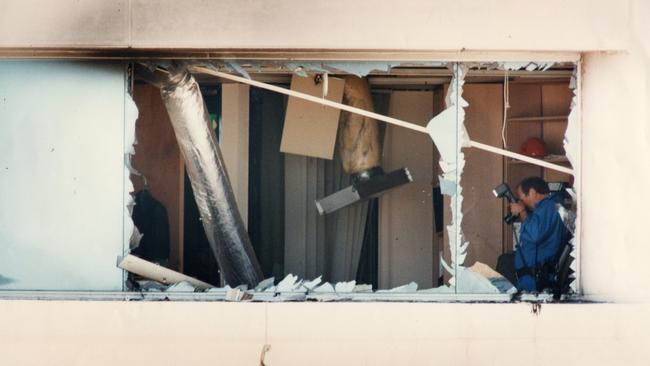Police close to solving National Crime Authority office blast that killed mafia investigator
MORE than two decades after the 1994 bombing of the National Crime Authority office that killed an investigator, police are finally close to arresting a figure alleged to be a mafia member.
News
Don't miss out on the headlines from News . Followed categories will be added to My News.
POLICE are close to solving the 1994 bombing of the National Crime Authority office that killed a mafia investigator.
The Herald Sun understands a figure alleged to be a mafia member is soon to arrested after a reinvestigation of the bombing of the 12th floor of the NCA’s Adelaide offices.
VICTORIA’S MOST NOTORIOUS CRIME MYSTERIES
The blast killed Detective Sergeant Geoffrey Leigh Bowen, 36, of Perth.
He was investigating the activities of the Calabrian mafia and the package containing the bomb was addressed to him.
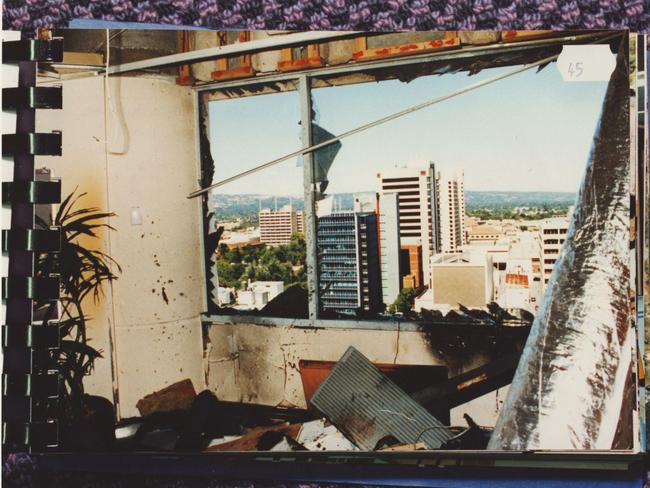
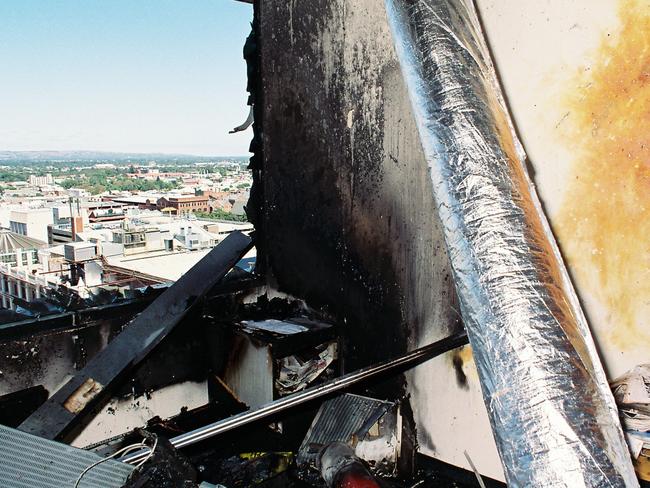
It is understood that state-of-the-art DNA testing of tiny fragments of the explosive device, which used red phosphorous, has produced a match.
Major crime investigators with South Australia’s police told the Herald Sun the “protracted, challenging and comprehensive” reinvestigation, which began in September 2015, was in its final stages.
The homemade bomb, in a cardboard express post pack, arrived at the NCA offices in the CPS building in Waymouth St, on March 2, 1994.
It detonated as Sgt Bowen opened the package. Lawyer Peter Wallis, 47, was severely injured in the blast.
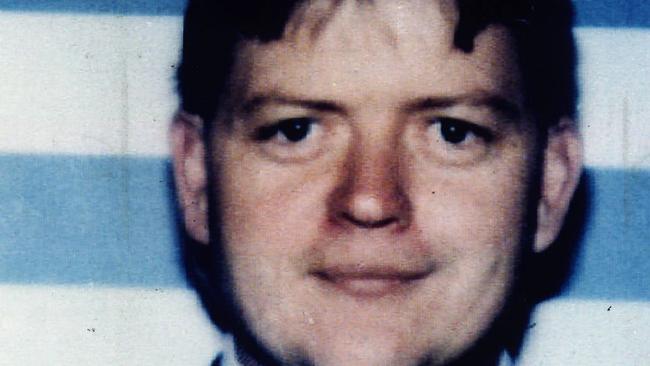
A week later, Dominic Perre, then of Salisbury North, was arrested and charged with murder and attempted murder.
But the case was dropped because of a lack of evidence.
Detectives linked the bombing to charges laid against Calabrian mafia figures involved in a $25 million marijuana drug crop raided at Hidden Valley Station in the Northern Territory. Sgt Bowen was to have given evidence against Mr Perre.
At a 1999 inquest, coroner Wayne Chivell said: “The only reasonable inference to be drawn from the evidence is that Dominic Perre was responsible, in the sense that he constructed the bomb, and either posted it or arranged for someone else to post it on his behalf to Det. Sgt Bowen.
“From all the evidence, I am unable to find whether Perre acted alone or in concert with another person or persons.’’
The inquest heard that Mr Perre had also been annoyed with Sgt Bowen for “trashing’’ his house when he was arrested in a raid related to the NT investigation.
In 2008, a $1 million reward was offered for information leading to a conviction.
But the recent breakthrough is believed to be the result of new techniques in DNA analysis.
The investigation by the police force’s Task Force Cornus, under South Australia Police Detective Superintendent Des Bray, has examined old files, some of which may emerge as being relevant.
An elaborate, nine-month undercover operation not long after the bombing focused on a mafia figure as the prime suspect for having mixed the red phosphorus with a nine-volt bomb to blow up the NCA.
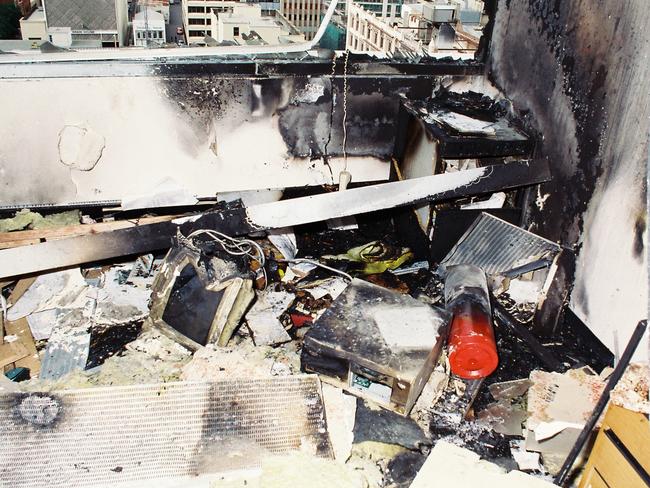
The operation, mainly by NSW and Victorian detectives — including one who had been injured in the Russell St bombing — involved infiltrating an Adelaide mafia cell by posing as criminals.
As part of the sting, they produced a 20kg haul of crystal methamphetamine with a street value of $20 million. One of the main ingredients in doing so, and one of the most difficult to obtain, was red phosphorous.
But no prosecution over the NCA bombing resulted from the sting operation because it was deemed legally fraught, and the classified documents were sealed.
Task Force Cornus has involved a team of up to 30 detectives, analysts and additional personnel.

